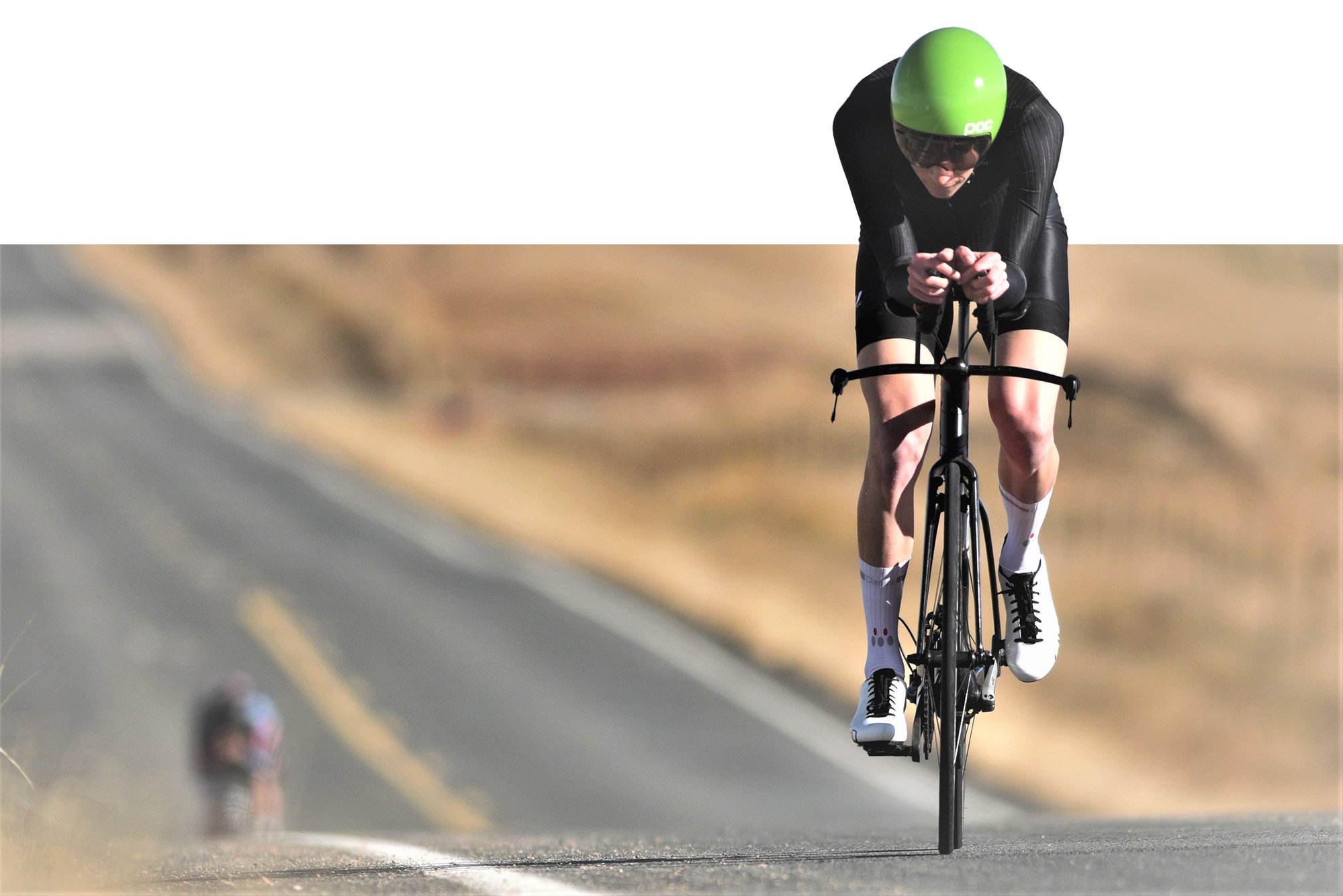From Zero to Stelvio: Complete Training Guide for European Cycling Tours
The Giro d’Italia might just be my favorite race to watch every year. The sheer beauty of the region, the tense racing, and the epic route make for a memorable watch every time. It’s always exciting when the race reaches the big mountain stages later in the race, and I can’t say how many times I’ve watched it thinking “Man, I’d really love to ride there someday!”
Logistically, it can be difficult for many cyclists (especially those across the pond) to coordinate European cycling tours, and many guided tours are quite expensive for a lot of us. Fortunately, CyclingHero is now revolutionizing the bike tour business by offering affordable supported self-guided cycling trips in Northern Italy. You can find out more details about taking one of the best cycling trips in Italy with CyclingHero later in the blog!
If you’re considering making the trip to do an epic week of riding in the mountains of Europe, you need to come prepared! Bringing your best fitness and preparation will make the experience much more enjoyable, and you’ll have a great feeling of accomplishment while doing the ride of your life. So just how do you train for, and execute an epic week of riding in Europe?
Training for Long Distance Cycling - Top Tips
The mountains in Europe are no joke. The pros make it look easy sometimes as they dance up the mountains, but these climbs are to be taken seriously. If you’re riding the Stelvio Pass in Italy, you will be climbing at 8% for 15 MILES… And that’s likely only going to be one of the climbs on your route. Riding brutal climbs for an entire week will take some special preparation and hard work. Here’s what you need to do to be prepared.
Start Early
You can’t cram for the test in this case. Preparing for a cycling trip in the Dolomites or elsewhere in Europe will require 6+ months of hard work and a regimented cycling training schedule. You’ll need to create a plan to show up at your best and crush those climbs. If your trip is in June, you want to start preparing in November! Where should you start when you begin training for your trip?
Build the Base!! - It might be tempting to go full bore into hard workouts at the beginning of your cycling training schedule, but you always need to start by laying the foundations at the start of your training cycle. Your high intensity is only as good as the base you begin with. Consistent zone 2 miles all year long will build the endurance and durability needed for your cycling trip.
Strength Training - Often overlooked by cyclists, a strong and healthy body is needed to perform at one’s best up the climbs. Strength training will build the muscular resilience needed to sustain high torque outputs while climbing for hours on end. Climbing is also a full body effort that incorporates your core and upper body. Strength training is essential for this. The winter is the best time to build up your strength, but you should maintain your strength YEAR ROUND.
See Also: Avoid These Common Gym Mistakes by CyclistsConsistency - Slow and steady wins the race. One of the key pieces to training is maintaining a consistent training load throughout the year. Don’t start off by doing too much and burn out down the line. Pick a sustainable amount of volume that you know you can hit most weeks of the year, and make it a goal to reach that every week. If you have 10 hours per week to train, hit that every week. Prioritize recovery and staying healthy so that you can avoid any interruptions in your training.
Volume - For a big cycling trip in Northern Italy, you will need to put in some big miles. There aren’t any shortcuts in cycling. Lots of time in the saddle will help you handle even the toughest of mountain rides. For most of us, there is an upper limit to the amount of time available to train, but commit to what you think is an ambitious (but realistic) amount of weekly training time. If you normally train 10 hours a week, see if there’s any way you can squeeze an extra 2-3 hours per week. It will pay off!
How to Train For a Bike Tour
In addition to zone 2 miles, there are some interval training sessions that can really help you be prepared for the grueling climbs on your European cycling tour.
Torque Training - When riding up sustained steep gradients for hours on end, you will be forced to ride at a low cadence no matter what your gearing is. While some riders have a high FTP and big aerobic engine, they sometimes lack the muscular capacity to handle high torque outputs for extended periods. Training at low cadence with torque training will prepare you for the hardest climbs Europe has to offer. For more information on the benefits and execution of torque training, you can read our blog and watch the Youtube video on this topic.
Tempo - While tempo isn’t the only thing you should do, it does have its place, especially when training for a bike tour. A big ride in the Dolomites or the Alps could see you climbing for HOURS, and you need to be ready to ride tempo for a very long time. Regularly incorporating long tempo intervals into your training will get you ready mentally and physically for the big mountain passes.
Big Climbing Days - If you’re lucky enough to have access to lots of climbs, one of the best ways you can prepare is by going out for epic days in the mountains. There’s something to be said for racking up 10,000 ft of climbing in one day! If you don’t have access to lots of climbs, you can hack the system by riding the Uber Pretzel on Zwift with 100% resistance.
BIG Rides - For an epic 6+ hour ride in the mountains, you’ll need to train your endurance with mega rides beforehand. Regularly do big rides (6+ hours) in the lead up to your trip.
Training Camps: The best way to get ready for a big week of riding is to (of course) do a big week of riding! Perhaps take advantage of the Holidays to stack a big 20 hour week, or plan a trip south in the winter with your buddies for a pre-season training camp. This will help adapt your body to high volume, but also allow you to have your recovery and nutrition dialed in for the big trip
Perfect Your Climbing Technique: Climbing is a unique skill with a lot of nuance. Fortunately, we have a whole blog dedicated to training for climbing that you can read here!
See Also: Improve Muscular Endurance and Fatigue Resistance
Cycling Trip in Northern Italy - Equipment Selection
Another important aspect to consider when preparing for your cycling trip is equipment selection. Most important, your gearing. When I lived in the Appalachian Mountains of North Carolina, I quickly learned that my 34/28 was not enough for the sustained 10%+ gradients that were unavoidable. I slapped on a 34 in the rear and that made a big difference.
Make sure that you check your gearing before your trip. Being able to ride at a higher cadence on the big climbs will make the trip a much more enjoyable experience!
Additionally, if you’ve been in the market for a new bike, consider getting a lighter bike that would be geared more toward climbing. The lightest bikes these days can weigh around 15-17 pounds. That extra 3-4 pounds lighter can have a substantial impact on your climbing for a week long trip.
Fueling - Nutrition For a Big Climbing Week
Proper fueling during your big week of riding will be paramount. When riding long distances day-after-day, you’ll be torching through the calories. Continuous replenishment of these calories is crucial to your performance.
On the bike, target around 90 grams of carbs per hour to keep you strong the whole ride. This can be with either solids or liquids.
Off the bike, lean your diet towards carbohydrates throughout the day. Since you’ll be doing a massive week, the extra carbs will be needed to keep the glycogen stores topped up.
You will likely also need to come prepared with your own nutrition. There may be times when you don’t have access to the proper recovery food, or perhaps it’s late at night and you’re starving. If you are able, have some emergency food ready to go before beginning your trip. This might mean raiding the supermarket the day before.
See Also: The Complete Guide to Cycling Nutrition
CyclingHero - The Best Cycling Trips in Northern Italy
Guided cycling trips are a popular way for cyclists to explore abroad. The local knowledge and technical support is important when you are so far from home. However, many of these trips are quite costly, and might provide more than you actually need to have fun exploring Euroland.
EVOQ.BIKE is partnering with CyclingHero to bring affordable supported cycling trips to the masses! What makes CyclingHero different is that the rides are self-guided with support. Rather than having a guide with you, you and your friends can enjoy the route for yourselves, and meet up with the support van at select points throughout the day if you need anything. CyclingHero includes the following services for your trip:
Pick up and drop off from the airport
Curated routes with several different route options
Support van that sweeps the course at least 1x per day
Energy drinks, energy bars and snacks
Daily briefing about the next day’s ride
Evening check on bikes and to answer any questions.
Rent a bike (or bring your own)
Boutique lodging in smaller properties with luxury amenities
Breakfast included every morning
Emergency support
Dedicated cycling app with full details of each day, POIs, tourist sites, and great food options
The best part? The cost. CyclingHero offers epic multi-day bike trips starting from ~$1500 … and there’s A LOT of great options to choose from such as:
Veneto and Prosecco Hills
Several options that include the magical Dolomites
Epic bucket list climbs like the Stelvio, or the Monte Grappa
Maratona Dles Dolomites 2025 with guaranteed entry
Gran Fondo Fausto Coppi in the Piedmont
Ready to go? Book your trip and get training!
EVOQ Training Plans
Check out our coach built training plans.






